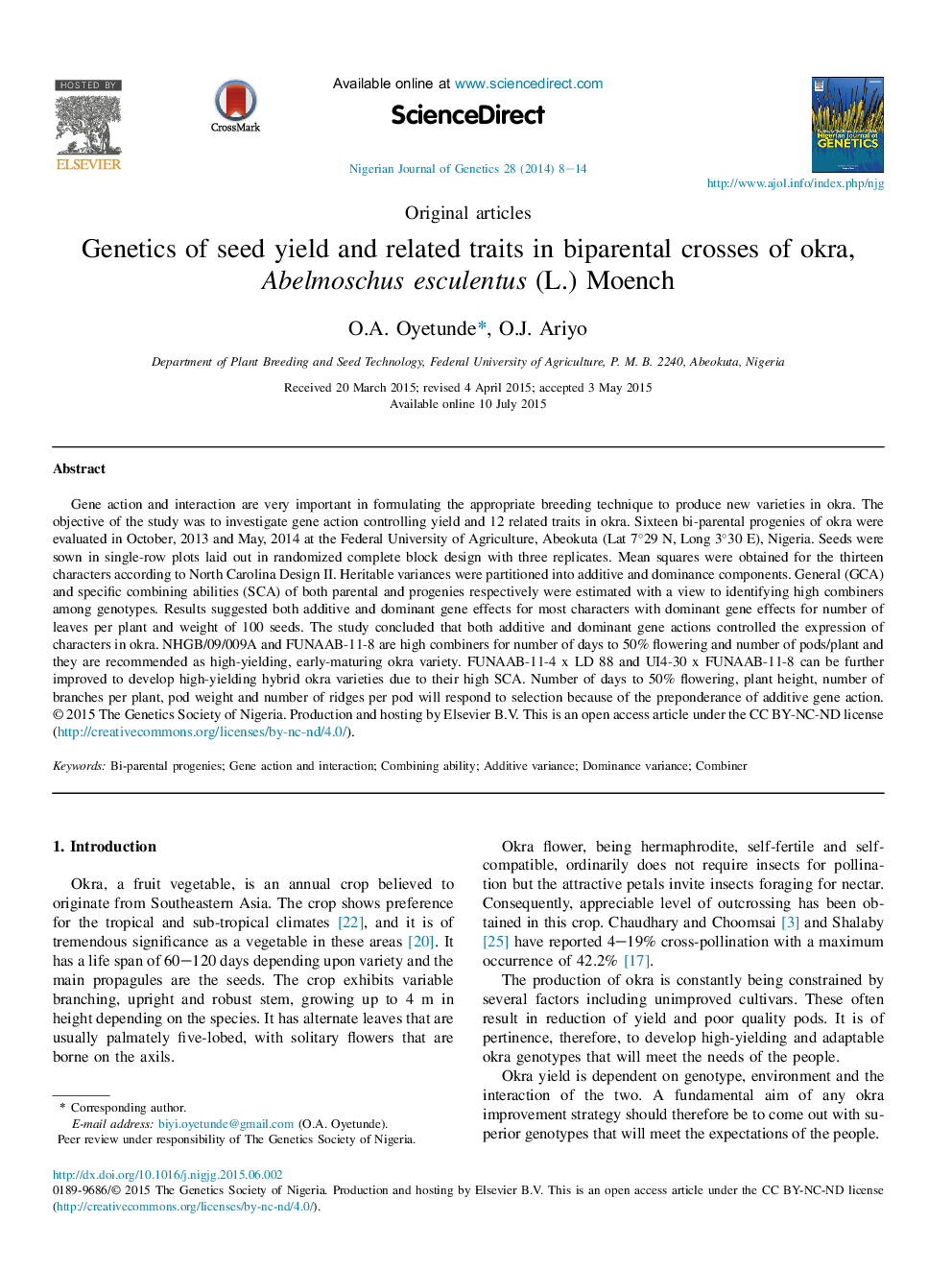| Article ID | Journal | Published Year | Pages | File Type |
|---|---|---|---|---|
| 4570793 | Nigerian Journal of Genetics | 2014 | 7 Pages |
Gene action and interaction are very important in formulating the appropriate breeding technique to produce new varieties in okra. The objective of the study was to investigate gene action controlling yield and 12 related traits in okra. Sixteen bi-parental progenies of okra were evaluated in October, 2013 and May, 2014 at the Federal University of Agriculture, Abeokuta (Lat 7°29 N, Long 3°30 E), Nigeria. Seeds were sown in single-row plots laid out in randomized complete block design with three replicates. Mean squares were obtained for the thirteen characters according to North Carolina Design II. Heritable variances were partitioned into additive and dominance components. General (GCA) and specific combining abilities (SCA) of both parental and progenies respectively were estimated with a view to identifying high combiners among genotypes. Results suggested both additive and dominant gene effects for most characters with dominant gene effects for number of leaves per plant and weight of 100 seeds. The study concluded that both additive and dominant gene actions controlled the expression of characters in okra. NHGB/09/009A and FUNAAB-11-8 are high combiners for number of days to 50% flowering and number of pods/plant and they are recommended as high-yielding, early-maturing okra variety. FUNAAB-11-4 x LD 88 and UI4-30 x FUNAAB-11-8 can be further improved to develop high-yielding hybrid okra varieties due to their high SCA. Number of days to 50% flowering, plant height, number of branches per plant, pod weight and number of ridges per pod will respond to selection because of the preponderance of additive gene action.
